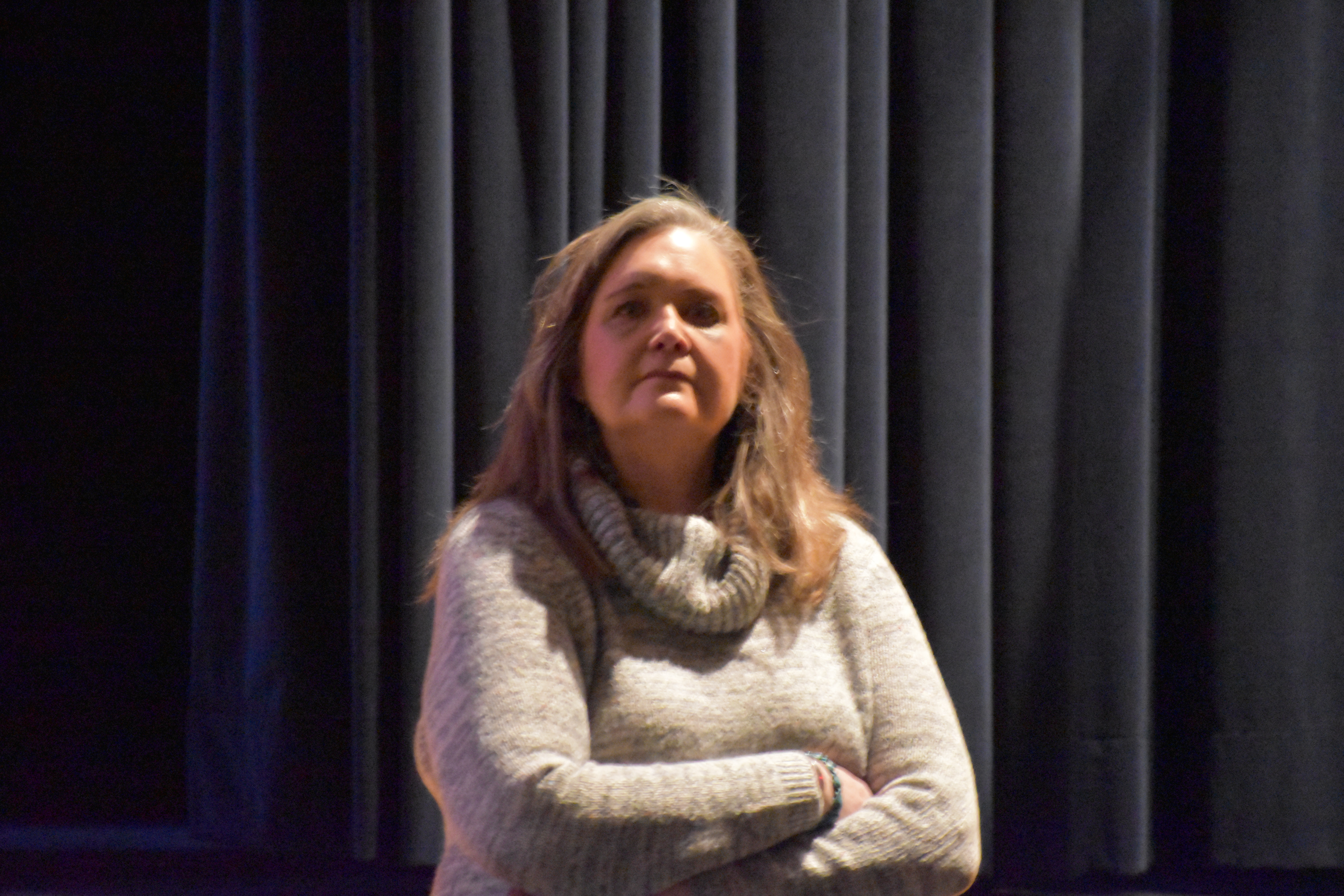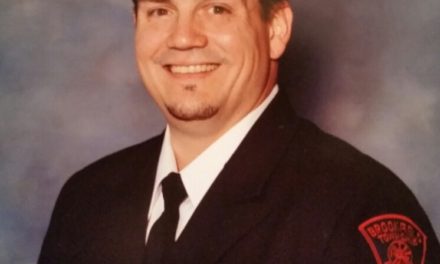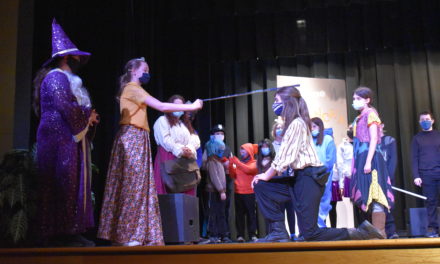
Jane Lewins
The human brain is designed to have hope, said Jane Lewins, president of the Ohio chapter of the American Foundation for Suicide Prevention, a licensed social worker and the mother of a son who committed suicide.
The brain is designed to solve problems and to get through life, she said at Feb. 21 assemblies for Brookfield High School students.
When the brain is not working according to design, such as in the instance of a physical injury, chemical imbalance, hormones, traumatic experience or stroke, it lies to us, Lewins said.
“It tells us things like, ‘This is never gonna get better. You’re not worth it. People don’t like you. You’re never gonna amount to anything. Life is just gonna be like this forever. You might as well just get used to it,’” Lewins said.
Those thoughts can lead to depression, which can manifest itself in isolating oneself from family and friends, inability to sleep or concentrate, heightened anxiety, loss of appetite, physical pain when there has been no noticeable injury and anger.
Although Lewins comes to this subject from a very painful place, she said she wants people to know that there always is a solution.
“You are not alone,” she said. “There is always a way to figure out the stress and the pain and the difficulties, and you can turn a story that feels really desperate or feels really hopeless into a story that will fuel you to keep going and might be helpful to other people. It will be a story that builds you into an incredible person.”
Before Lewins’ son, Micah, died in 2011, she never talked about suicide, and never heard others talk about it, she said.
“And then, people I sat in football stands with and church and PTA meetings and in the grocery store, people started saying, ‘Oh yeah, I lost my father, or lost my cousin or lost my friend,’” she said.
It’s OK to talk about suicide, Lewins said.
“That’s how we know what’s going on with people, so we can get them in front of somebody that can help,” she said.
At Brookfield, there are lots of people who can help, said Principal Kristen Foster. She named herself as someone who can help, other administrators, teachers, the school psychologist and the guidance counselor.
“There are people who are here to talk if you need them,” Foster said. “There are so many adults here that love you. I think most of you have someone in this building you’re comfortable going to. If you can’t go to a family member or a friend, you know there’s adults here that care about you and love you and want to help you at all times.”
 Lewins asked the students to look out for each other and the signs that something is not the way it should be, but also to try to recognize within themselves when things aren’t going right.
Lewins asked the students to look out for each other and the signs that something is not the way it should be, but also to try to recognize within themselves when things aren’t going right.
“When you walk out of here, my hope is that you will be a little more aware, a little more sensitive to things that might be different or somebody who might be struggling, or even yourself, that maybe you’ll be more aware of, ‘This isn’t the way I should be thinking or should be feeling, and maybe I need to do something about that,’” she said.
“There is always a solution,” Lewins said. “There is always somebody in your corner. You just have to go find them. If you’re struggling, you gotta go find them. If you know somebody who’s struggling and they’re not talking, ask them.”
The National Suicide Prevention Lifeline, a network of more than 150 crisis centers, is available 24 hours a day, seven days a week at 1-800-273-TALK (8255).








